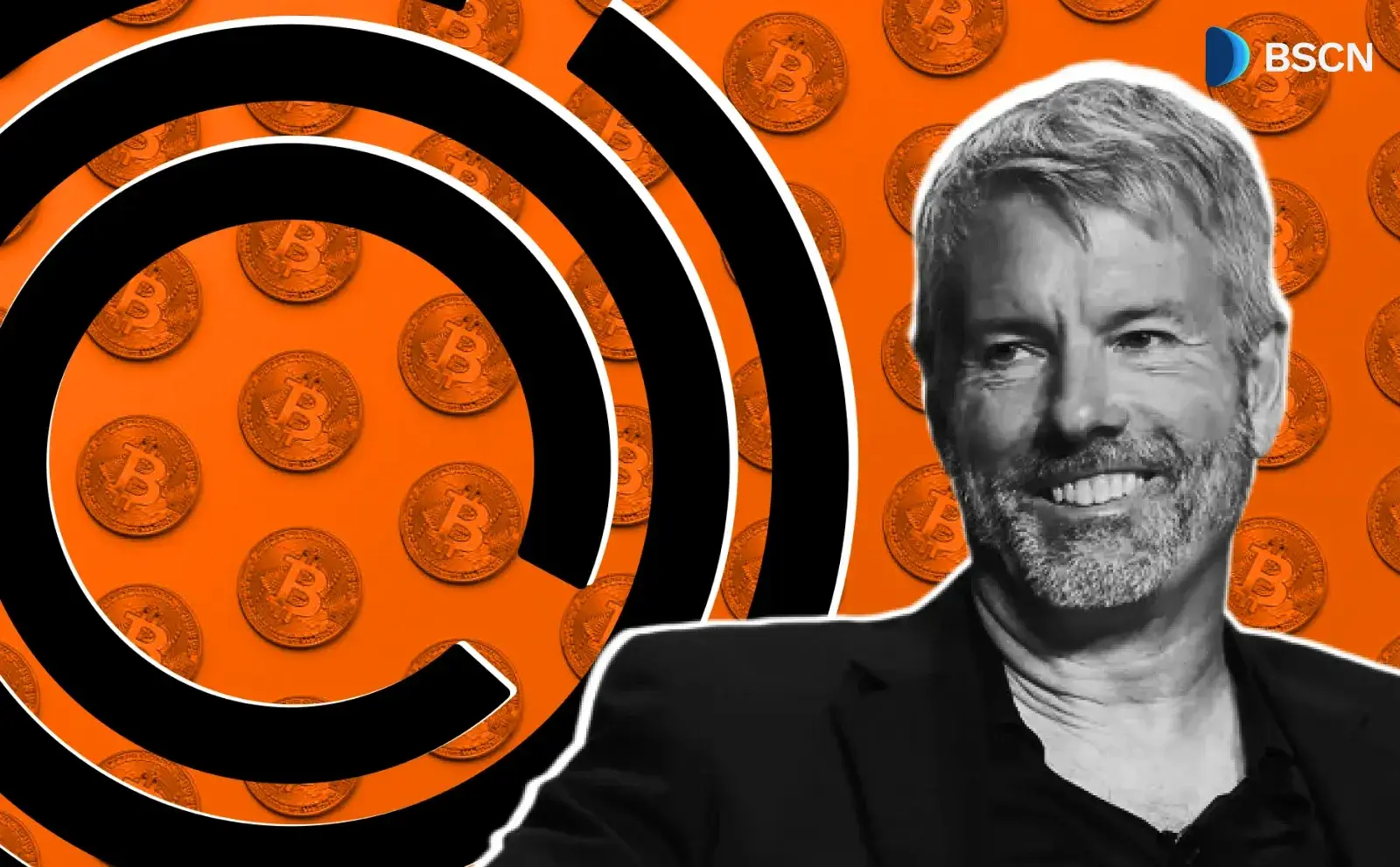Bitcoin in 2025: The Definitive Guide to Crypto's Reigning Champion

Discover Bitcoin's dominance in May 2025 with $104K prices, 12M daily Lightning transactions, and global adoption. Your ultimate guide to crypto's undisputed leader.
Crypto Rich
May 13, 2025
Table of Contents
Bitcoin's Evolution: Powering 2025
Bitcoin, launched in 2009 by the elusive Satoshi Nakamoto, is the world's first decentralized cryptocurrency. Its blockchain—a public, tamper-proof ledger—secures transactions via cryptography and a global node network, free from banks or governments.
In May 2025, Bitcoin's firing on all cylinders. The Lightning Network processes 12 million daily transactions, enabling instant payments—like tipping a gamer in Tokyo or buying tacos in San Salvador. Taproot's privacy upgrades (since 2021) streamline complex deals, while layer-2 solutions like Ark bring DeFi to Bitcoin without compromising its core principles.
Bitcoin has evolved from a fringe experiment to a global financial network without losing its founding vision.
Real-World Impact: Bitcoin's 2025 Muscle
Bitcoin solves real problems. In Ethiopia's conflict zones, where traditional banks have collapsed, BTC moves humanitarian aid instantly. In Nigeria, with 40% inflation ravaging the naira, Bitcoin serves as a vital shield for savings. El Salvador's Bitcoin-as-legal-tender experiment has matured with 50% merchant adoption, attracting crypto startups and digital nomads to its shores.
Corporate adoption has shifted from experimental to operational. Tesla has resumed accepting BTC for vehicle purchases, while Walmart trials Bitcoin for supply chain payments and tracking. From refugee assistance to boardroom transactions, Bitcoin is redefining money's DNA in 2025.
Bitcoin's utility spans from crisis zones to commerce, proving its versatility as a financial tool.
How to Buy and Hold Bitcoin in 2025
Getting started with Bitcoin in 2025 is easier than ever, with a range of secure wallets, reputable exchanges, and user-friendly purchase methods. Whether you're a beginner or a seasoned investor, here's a balanced guide to buying and holding Bitcoin safely, without relying on any single platform.
Wallet Options
Choosing the right wallet is critical for securing your Bitcoin. Hardware wallets offer top-tier security for long-term storage, while mobile wallets provide convenience for daily use:
- Hardware Wallets: Ledger Nano X and Trezor Model T are industry leaders, storing your private keys offline in tamper-resistant devices. Ledger supports over 5,000 assets, while Trezor's open-source design appeals to Bitcoin purists. Coldcard, favored by security enthusiasts, is Bitcoin-only and air-gapped for maximum protection but has a steeper learning curve.
- Mobile Wallets: BlueWallet and Trust Wallet strike a balance of security and ease, ideal for smaller transactions or beginners. BlueWallet supports Lightning Network payments, while Trust Wallet, backed by Binance, offers a sleek interface for managing Bitcoin and other assets.
Tip: For significant holdings, move Bitcoin to a hardware wallet after buying. "Not your keys, not your crypto"—self-custody is key.
Trading Platforms
Selecting a reputable exchange is essential for buying Bitcoin. Here are some of the most well-known platforms in May 2025, each with unique strengths to suit different needs:
- Coinbase: A beginner-friendly choice with a polished interface and strong U.S. regulatory compliance. It's ideal for new investors but has higher fees (1-2% per trade).
- Kraken: Known for low fees (0.16% maker, 0.26% taker) and robust security, Kraken appeals to both novices and pros. It supports fiat deposits and advanced trading.
- Binance: The world's largest exchange by volume, offering over 350 cryptocurrencies and low fees (0.1% spot trading). It's great for frequent traders but less intuitive for beginners.
- Gemini: A U.S.-based platform with a focus on security and regulatory clarity, perfect for institutional and retail investors. Fees range from 0.2-0.4%.
- Swan Bitcoin: A Bitcoin-only platform with low fees and a focus on recurring buys, ideal for long-term hodlers. Praised for its simplicity.
Note: Due to various risks, avoid leaving Bitcoin on exchanges long-term. After purchase, transfer it to a non-custodial (hardware) wallet.
Purchase Methods
Buying Bitcoin is flexible, with options for efficiency, familiarity, or privacy:
- Stablecoin Swaps: Exchanging USDC for BTC on exchanges like Binance, Kraken, or Coinbase is fast and minimizes price volatility during trades. Fees vary (0.1-0.5%), but it's cost-effective for larger purchases.
- Fiat-to-Crypto: Platforms like Coinbase and Gemini accept bank transfers, debit/credit cards, or PayPal for direct BTC buys. Expect 1-3% fees for convenience.
- Cash App/Venmo: Both offer user-friendly crypto tabs for buying Bitcoin with dollars. Cash App's fees are 1-2%, while Venmo's are higher (2-3%) but accessible for newcomers. Transfer to a wallet post-purchase, as these platforms hold your keys.
- Peer-to-Peer (P2P): Platforms like Bisq or LocalBitcoins let you buy BTC directly from others, often with cash or bank transfers, prioritizing privacy. Verify sellers to avoid scams.
Security Practices
After buying, store BTC in a hardware wallet for safety. Enable two-factor authentication (2FA) on exchanges, use strong passwords, and never share private keys. For advanced users, multisig wallets (e.g., via Coldcard or Casa) add extra protection, requiring multiple signatures to spend.
Market Pulse: Bitcoin in May 2025
As of May 12, 2025, Bitcoin trades at $104,441, showing a 35% increase year-to-date despite pulling back from January's high of $109,000. With a market capitalization of over $2 trillion, Bitcoin now rivals major corporations like Tesla in financial weight.
The 2024 halving, which reduced mining rewards to 3.125 BTC per block, continues to constrain supply. Meanwhile, demand drivers include BlackRock's Bitcoin ETF, now managing over $50 billion in assets, and crypto-friendly policies under the Trump administration. And technical indicators are suggesting continued upward momentum.
While volatility remains—12% price swings aren't uncommon—the fact that 60% of Bitcoin hasn't moved since 2023 indicates strong holder confidence. Analysts project potential prices of $135,000 by year-end if institutional inflows maintain their current pace, though potential U.S. interest rate hikes could trigger corrections up to 20%.
Bitcoin has established itself as a global finance disruptor, but still experiences significant price volatility.
Mining's Green Shift
Bitcoin mining has undergone a remarkable transformation by May 2025. More than 80% of mining operations now run on renewable energy, from wind farms in Texas to hydroelectric facilities in Bhutan. The 2024 halving accelerated industry consolidation, with professional operations like CleanSpark dominating the landscape.
Innovative miners now contribute to local energy grids, particularly in places like Kenya, where excess mining power supplements community needs. Bitcoin's environmental footprint—approximately 0.3% of global emissions—compares favorably to traditional finance's estimated 2% impact. Environmental, Social, and Governance (ESG) funds continue to pressure the industry, with miners targeting net-zero operations by 2030 through comprehensive carbon offset programs.
Bitcoin mining has evolved from an environmental concern to a driver of renewable energy adoption.
Challenges: Bitcoin's 2025 Foes
Despite its success, Bitcoin faces meaningful challenges in 2025. Regulatory pressure has intensified, with Canada implementing a 20% cryptocurrency tax and the U.S. Internal Revenue Service conducting 20,000 audits in Q2 2025 alone.
Security remains a concern following a $50 million DeFi bridge hack in April 2025. User error continues to plague the ecosystem, with approximately $700 million worth of Bitcoin lost annually due to misplaced private keys. The Lightning Network's complex architecture, which experienced vulnerabilities like the 2023 replacement cycling attack, remains a target for sophisticated hackers, though no major exploits have been confirmed in 2025.
The theoretical threat of quantum computing breaking Bitcoin's encryption exists, though experts don't anticipate this capability before 2035, if ever. Socially, cryptocurrency's persistent image as a "tech bro" domain risks limiting mainstream adoption, with recent surveys showing Gen Z expressing higher skepticism toward crypto than previous generations. For all its technical strength, Bitcoin must overcome these perception challenges to reach its full potential.
While Bitcoin has demonstrated remarkable resilience, it faces ongoing regulatory, security, and perception challenges.
Crypto Clash: Bitcoin vs. Rivals
Ethereum's dominance in decentralized finance and Solana's transaction speed advantages haven't diminished Bitcoin's position as the market leader. With 58% market dominance in May 2025, Bitcoin remains the benchmark against which all cryptocurrencies are measured. Stablecoins like Tether (USDT) facilitate trading across the ecosystem, but Bitcoin provides the foundation for major lending platforms like Aave's $24 billion market.
Memecoins like Dogecoin continue to generate headlines during market euphoria but lack Bitcoin's fundamental strength. Bitcoin's greatest competitive advantage is its foundation—free from founder controversies and pre-mining accusations that plague many alternatives. While not optimized for complex smart contracts, Bitcoin's position as crypto's cornerstone remains unchallenged.
Bitcoin maintains market leadership through its unmatched network security and credible neutrality.
Bitcoin Myths Debunked
Myth: Bitcoin is primarily used for illegal activities
Fact: The vast majority of Bitcoin transactions are legitimate, with the transparent nature of the blockchain actually making it less suitable for illicit use than cash. Law enforcement agencies now routinely trace criminal activity on the blockchain.
Myth: Bitcoin is environmentally destructive
Fact: With 80% of mining now powered by renewable energy and a carbon footprint significantly lower than the traditional banking system, Bitcoin is increasingly recognized as a catalyst for green energy development.
Myth: Bitcoin is just another financial bubble
Fact: Bitcoin's $2+ trillion market capitalization, institutional adoption, and 16-year history of growth through multiple market cycles demonstrate staying power beyond typical speculative bubbles.
Understanding these facts helps cut through common misconceptions about Bitcoin in 2025.
Tech Firepower: Bitcoin's 2025 Engine
Bitcoin's technical infrastructure continues to evolve in 2025. Taproot enables more complex transactions while maintaining privacy. The Lightning Network now handles 700 transactions per second with fees under $0.01, attracting major brands like Nike for NFT drops. Layer-2 solutions such as Liquid process $12 billion in exchange flows monthly, reducing congestion on the main blockchain.
Scaling remains Bitcoin's primary technical challenge—the base layer's 7 transactions per second cannot support global adoption alone. However, solutions like Ark's off-chain vaults and various Rollup technologies are addressing this limitation. Developer activity remains robust, with 20,000 GitHub commits recorded in Q2 2025.
Bitcoin continues to scale through technical innovation without compromising its core principles.
Future Bets: Bitcoin's Next Chapter
Trump's proposed U.S. Bitcoin strategic reserve, potentially securing 1 million BTC by 2027, signals a major shift in government attitudes. Meanwhile, Kenya's cryptocurrency adoption has reached 45% of adults, while Singapore's tax breaks for Bitcoin transactions demonstrate increasing governmental openness worldwide.
Lightning Network's $20 billion in remittance flows could revolutionize how migrant workers send money home, potentially disrupting traditional remittance services like Western Union and MoneyGram. This practical utility continues to expand Bitcoin's user base beyond investors and traders.
Significant risks remain—global recession or restrictive SEC custody regulations could drive prices down to $85,000. However, if current momentum continues, projections suggest Bitcoin could reach $150,000 by mid-2026, with some analysts predicting peaks of $300,000 during periods of market euphoria.
Bitcoin's trajectory points toward increased mainstream adoption despite potential headwinds.
Bitcoin FAQs for May 2025
Is Bitcoin Legal?
Bitcoin is legal in over 140 countries, though tax treatment varies significantly. The U.S. taxes Bitcoin as property rather than currency.
Can Individual Mining Still Be Profitable?
Home mining is largely unprofitable without specialized equipment (costing approximately $100,000) and access to extremely low-cost electricity.
How Has the Halving Affected Bitcoin?
The 2024 halving has reduced supply growth, contributing to price appreciation—following the pattern observed in previous halving cycles.
How Private Are Bitcoin Transactions?
Bitcoin offers pseudonymity rather than complete anonymity. Tools like CoinJoin provide additional privacy for users who require it.
Is Bitcoin a Good Investment in 2025?
With analysts projecting $135,000 by year-end, Bitcoin shows strong potential. However, its volatility requires risk management and a long-term perspective.
Bitcoin offers accessibility for beginners while providing depth for advanced users.
Conclusion: Why Bitcoin Rules
Despite its volatility, regulatory challenges, and scaling limitations, Bitcoin is cryptocurrency's undisputed leader. Its journey from theoretical whitepaper to global financial infrastructure has empowered millions worldwide—from refugees securing their wealth to corporations streamlining their operations.
Built on immutable code and unwavering principles, Bitcoin represents a financial system that doesn't depend on centralized authorities. For those ready to participate, the entry point is simple: acquire your first satoshi (Bitcoin's smallest unit; 0.00000001 $BTC), secure your private keys, and join a financial revolution that continues to gain momentum.
Read Next...
Disclaimer
Disclaimer: The views expressed in this article do not necessarily represent the views of BSCN. The information provided in this article is for educational and entertainment purposes only and should not be construed as investment advice, or advice of any kind. BSCN assumes no responsibility for any investment decisions made based on the information provided in this article. If you believe that the article should be amended, please reach out to the BSCN team by emailing [email protected].
Author
 Crypto Rich
Crypto RichRich has been researching cryptocurrency and blockchain technology for eight years and has served as a senior analyst at BSCN since its founding in 2020. He focuses on fundamental analysis of early-stage crypto projects and tokens and has published in-depth research reports on over 200 emerging protocols. Rich also writes about broader technology and scientific trends and maintains active involvement in the crypto community through X/Twitter Spaces, and leading industry events.
Crypto Project & Token Reviews
Project & Token Reviews
Comprehensive reviews of crypto's most interesting projects and assets
Learn about the hottest projects & tokens





















